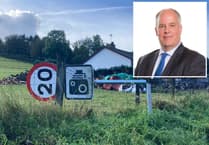Jesse Norman, MP for Hereford and South Herefordshire, and Minister of State for Transport, recently spoken about the potential benefits and possibilities of zero emission flights.
In response to questions raised by Andrew Selous, the Second Church Estates Commissioner, Mr Norman highlighted the government’s commitment to net zero aviation by 2050.
The strategy focuses on zero emission flight alongside other measures, emphasising the feasibility of using zero emission aircraft on existing government-funded PSO routes. It also acknowledges the need to strike a balance between reducing aviation emissions and ensuring value for money on routes supported by public funding.
Additionally, the government has committed £685 million in funding between 2022 and 2035 through the Aerospace Technology Institute (ATI) Programme. This investment will be used to co-fund the development of zero-carbon and ultra-efficient aircraft technology. One example of this collaboration is the £113 million joint investment in R&D projects to develop liquid hydrogen combusting jet engines and high-end lightweight batteries for aircraft.
ATI funding is also supporting ZeroAvia’s current flight testing of a 19-seater aircraft powered by hydrogen propulsion. If successfully brought to market, this technology could provide zero emission flights on regional and sub-regional routes, reflecting the government’s dedication to achieving net zero aviation.



